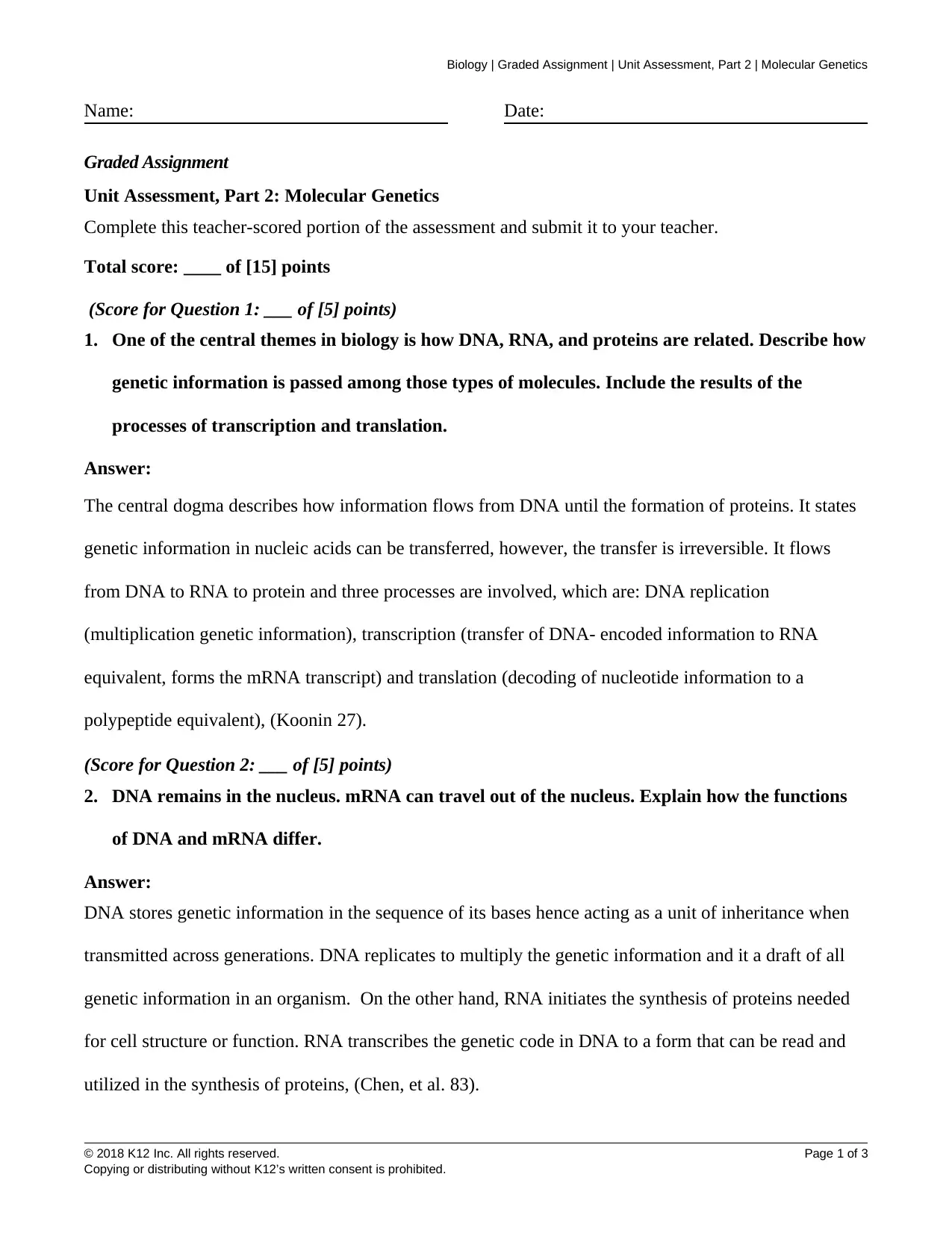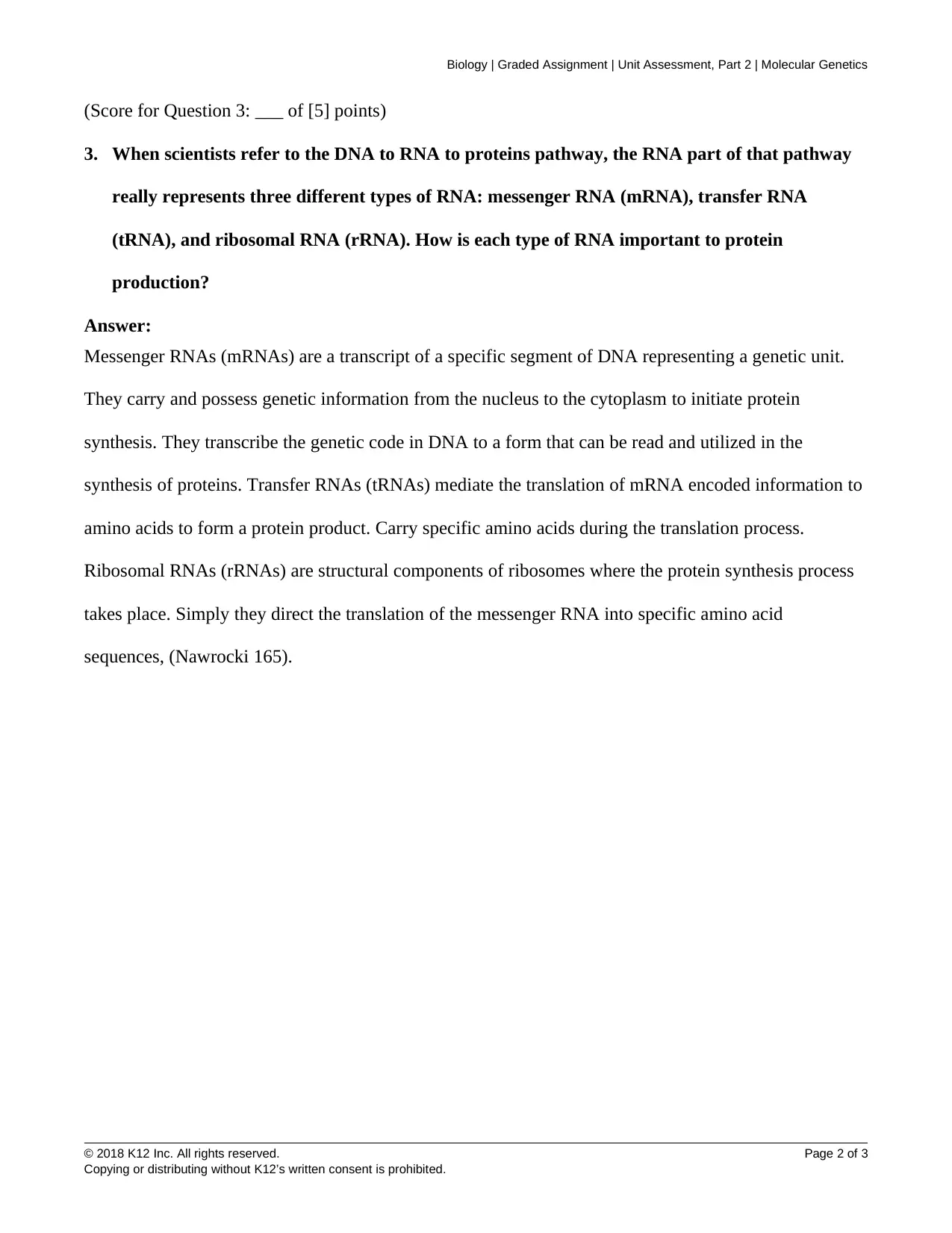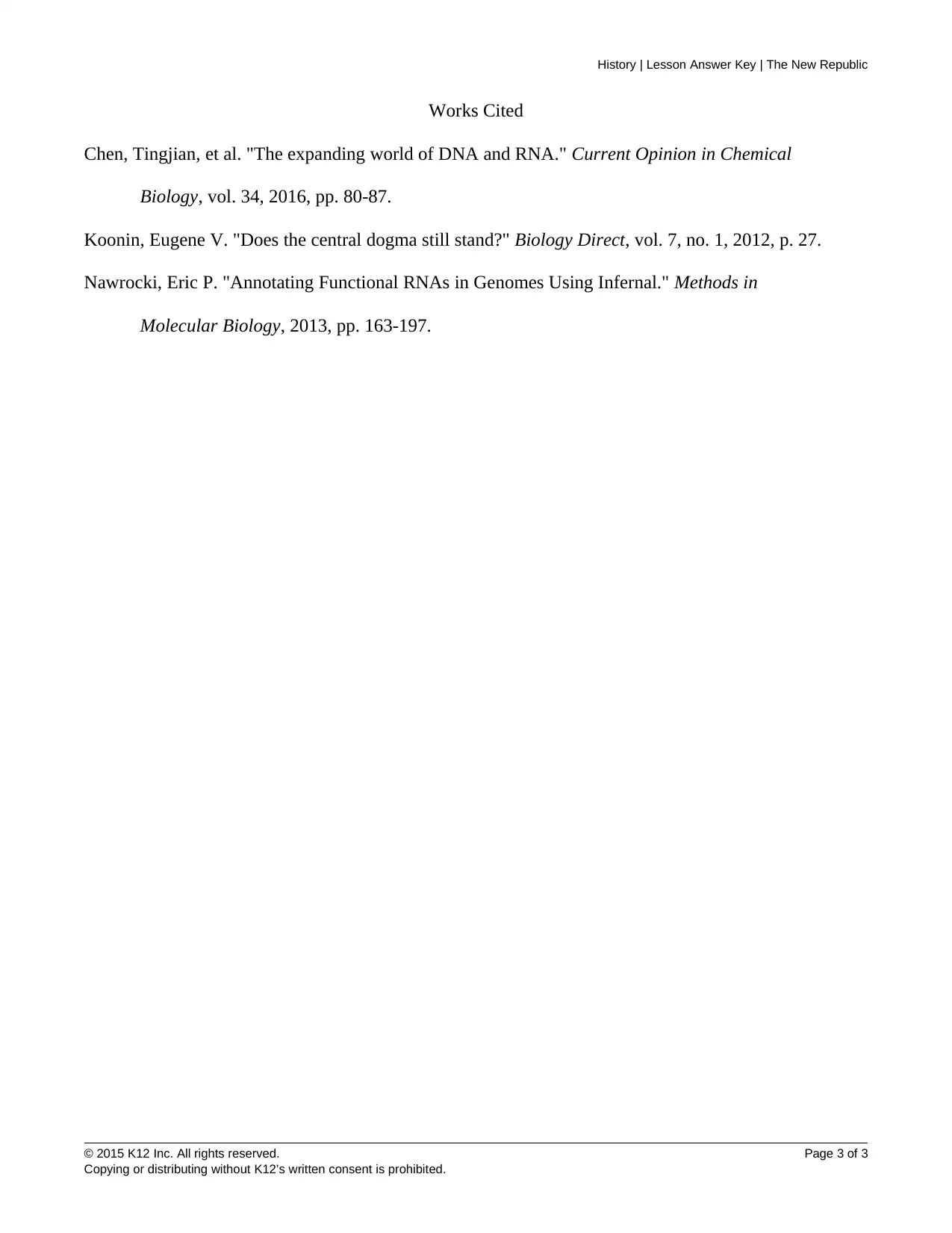Graded Assignment: Molecular Genetics Unit Assessment, Biology
VerifiedAdded on 2022/09/25
|3
|670
|19
Homework Assignment
AI Summary
This assignment is a graded assessment focusing on molecular genetics, specifically the relationship between DNA, RNA, and proteins. The assignment requires students to describe how genetic information is passed among these molecules, including the processes of transcription and translation. It also explores the differences in function between DNA and mRNA, and the roles of messenger RNA (mRNA), transfer RNA (tRNA), and ribosomal RNA (rRNA) in protein production. The answers provided highlight the central dogma of molecular biology, the roles of different RNA types in protein synthesis, and the mechanisms by which genetic information is stored, transferred, and utilized within a cell. The assignment includes references to key scientific literature supporting the concepts discussed.
1 out of 3










![[object Object]](/_next/static/media/star-bottom.7253800d.svg)